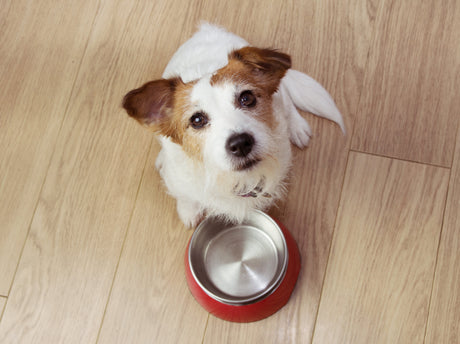In the vast world of canine nutrition, the question frequently arises as to whether feeding pumpkin to dogs is safe and beneficial. Given the growing trend towards natural and wholesome pet foods, the answer is a resounding YES!
However, it's important to clarify that the beneficial pumpkin is not the seasoned or sweetened kind, such as found in pumpkin pie. Instead, the emphasis here is on plain, 100% pure pumpkin—no sugar, no spices.
This simple form of pumpkin is safe for dogs and offers numerous health benefits, making it a superb addition to their regular diet as a fun topper, a preventive solution, or a special treat.
A Nutritional Powerhouse for Dogs
Pumpkin is not just a tasty treat; it's packed with soluble and insoluble fibers and laden with essential vitamins, minerals, and antioxidants. This combination makes pumpkin an incredibly versatile and beneficial food for your dog. Your dog might come for the flavor but stay for the health benefits—of which there are plenty!
Loose Stool or Constipation: Pumpkin's high fiber content helps regulate bowel movements, firming loose stool and easing constipation.
Gut Health: Fiber boosts gut motility and supports healthy gut bacteria.
Weight Loss: Pumpkin is low in calories and high in fiber, which can help dogs feel full longer and keep things moving within their digestive tract.
Beyond Digestive Health: Rich in vitamins (A, C, E) and minerals, promoting skin, coat, immune system, and eye health.
Bringing Balance to Your Dog's Gut
Pumpkin is increasingly recognized as a panacea for digestive troubles such as diarrhea and constipation, mainly due to its balanced fiber content. What sets pumpkin apart is its combination of soluble and insoluble fibers, each serving a unique purpose within the digestive system.

For diarrhea, pumpkin's soluble fibers act like sponges, absorbing extra water in the gut. This process helps bulk and firm stools, providing a natural solution to loose bowel movements.
On the other hand, for constipation, the insoluble fibers in pumpkin work by adding softness to the stool. They attract water into dry, hard feces, aiding in easier passage without discomfort.
The dual functionality of pumpkin fibers—absorbing water to firm stools and providing moisture for softer movements—positions pumpkin as an exceptionally versatile dietary aid for dogs. By tackling both ends of the digestive spectrum, pumpkin is a highly effective remedy, making it a preferred choice for pet owners seeking natural solutions for their canine companions' digestive issues.
Beyond the Fibrous Benefits of Pumpkin
Fiber is a key benefit of pumpkin for dogs, but it's just the beginning. Pumpkin is a superfood, rich in essential vitamins, minerals, and antioxidants that can benefit a dog's overall health.
It contains Vitamin A from beta-carotene, crucial for vision, immune health, and skin integrity, and Vitamin C, which supports the immune system and reduces inflammation. Vitamin B-6 is vital for brain function and hormone regulation. Pumpkin also provides potassium, which is important for heart health and muscle function.
These nutrients aid digestion and contribute to a robust immune system, healthy organ function, and overall well-being for your pup!
Start Incorporating Pumpkin into Your Dog's Diet!
Given its advantages, it's clear why pumpkin has found favor among pet owners. In addition to supporting digestive health, pumpkin can provide a rich source of essential vitamins and minerals and serve as a helpful supplement for weight management.
So, can you feed your dog pumpkin? Absolutely! Whether used as a dietary supplement for specific health concerns or simply as a nutritious treat, pumpkin is a beneficial addition to your dog's diet. Its versatility, combined with its array of health benefits, makes pumpkin a true superfood for dogs.
Remember, as with any new food, try introducing it slowly into your dog's diet to be sure it agrees with them, and consult your veterinarian if you have any questions.





